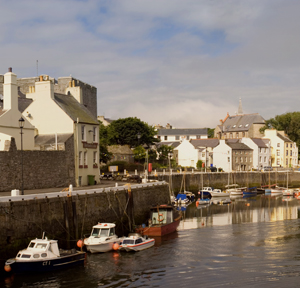Offshore
Isle Of Man Seeks To Get Its Financial Mojo Back With Alternative Banking Regime

The parliament of the jurisdiction has passed a law paving the way for a new banking regime that it hopes will appeal to those with niche offerings.
Lawmakers in the Isle of Man have approved legislation to
create a new alternative banking regime (ABR) that grants two
additional types of banking licence in the island, continuing
moves to compete with rival offshore jurisdictions and reverse a
fall in banks registering there.
The new rules take effect from 1 August and are designed to
attract more niche players in the banking world, a statement
from the government said.
The ABR widens the scope for banking opportunities on the Isle of
Man, aiming to bring benefits to sectors that require
niche banking facilities. The ABR splits the existing Class 1
(deposit taking) banking licence into three sub classes: 1 – for
the typical existing bank and any taking retail deposits; 2 – for
non-retail deposit takers - those that may only provide services
to corporates, and a very limited class of individuals
("restricted depositors"), and 3 - for representative offices of
foreign banks, which are not permitted to hold deposits or
conduct any other regulated activities.
“Our existing banks provide an excellent service, but the number
of operators has fallen since 2008 and this initiative aims to
increase the choice for businesses in the Isle of Man and
internationally,” Laurence Skelly MHK, minister for the
Department of Economic Development.
In 2010, a total of 34 deposit-taking banks were registered on
the Isle of Man; in March 2016, according to official data, 22
banks were registered, overseeing around £45.3 billion of
deposits, down from £54.6 billion at the end of 2010.
The development of such a regime was
flagged to this publication earlier in the year and is one of
a number of initiatives being worked on by the UK Crown
Dependency. The government of the Isle of Man will hope that such
new banking options will boost business in the island. Last
month, policymakers sought to soothe nerves after the
international ratings agency Moody’s Investor Services reduced
its outlook on the island to “negative” from “stable” following
the 23 June Brexit vote by UK voters.